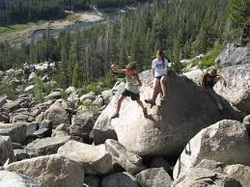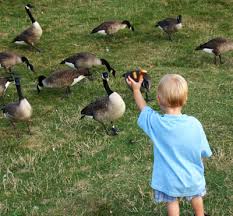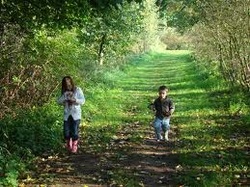 www.parks.ca.gov
www.parks.ca.gov I agree with this. Maybe "street gangs" wouldn't exist if we all lived close to nature and developed a bond. Then again, I grew up in an area with no trees apart from a park about fifteen minutes walk away. But I took my sisters there every week and we'd roll around on the grass. We'd climb the apricot tree in the back garden and dream of another life.
I don't remember bad groups of boys in the 1940s in Australia. Times have changed so much since then.
'Children in Nature' groups have formed around America, part of a growing worldwide movement to reconnect children with nature. Campaigners say children are missing out on opportunities afforded to previous generations, ones as simple as climbing trees or getting their knees dirty.
In an increasingly urbanized, electronic-based, risk-adverse world, the adults of the future are displaying the symptoms of "nature-deficit disorder", a term coined by Richard Louv, author of Last Child in the Wood.
A new study from the RSPB (Royal Society for Protection of Birds) suggests that large numbers of children in Britain are missing out on the natural world. The three-year British project found that only 21% of children aged 8-12 were "connected to nature".
They came up with a definition of what "connected to nature" actually means, and then developed a questionnaire with 16 statements designed to assess the level of connection among children. The concept includes these four descriptions of how children feel about nature:
 www.happynews.com
www.happynews.com Having a sense of oneness with nature
Having a sense of responsibility for the environment
Enjoyment of nature
Improving children's natural bond is not only good for the youngsters, it is crucial for the future of nature conservation in the world. This will generate a force that can save nature and stop us living in a world where the environment is declining.
A lack of exposure to the open air under trees, or at the beach with the wind blowing through your hair, could be resulting in more urban dwellers developing allergies and asthma. Finnish scientists say certain bacteria, shown to be beneficial for human health, are found in greater abundance in non-urban surroundings. Research suggests microbiota play an important role in the development and maintenance of the immune system.
 www.woodlandtrust.org.uk
www.woodlandtrust.org.uk Outside under the trees, listening to the birds and the rustle of autumn leaves, I feel the connection to all living things.

 RSS Feed
RSS Feed






